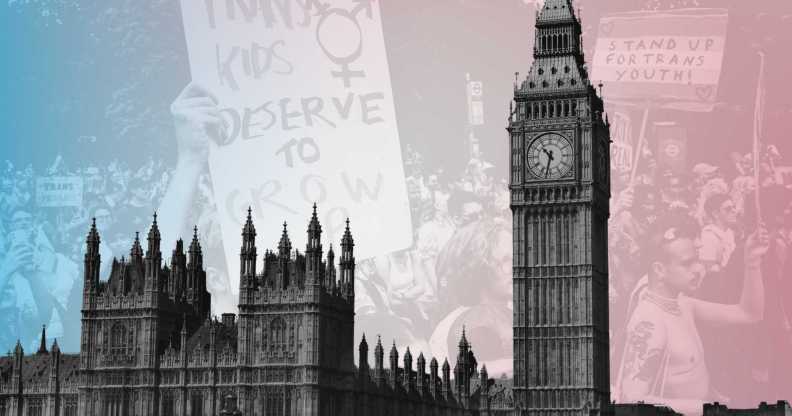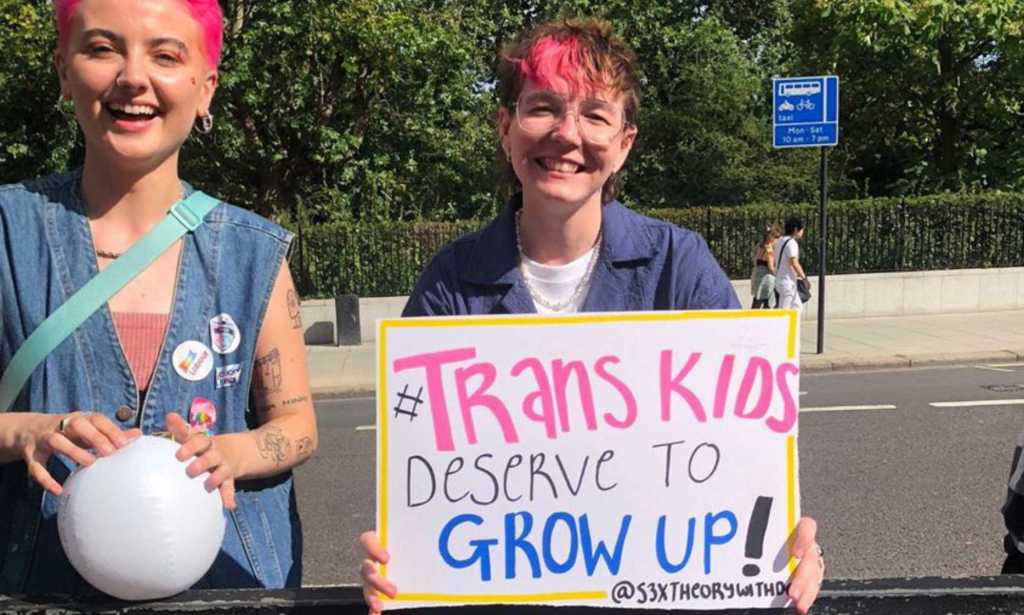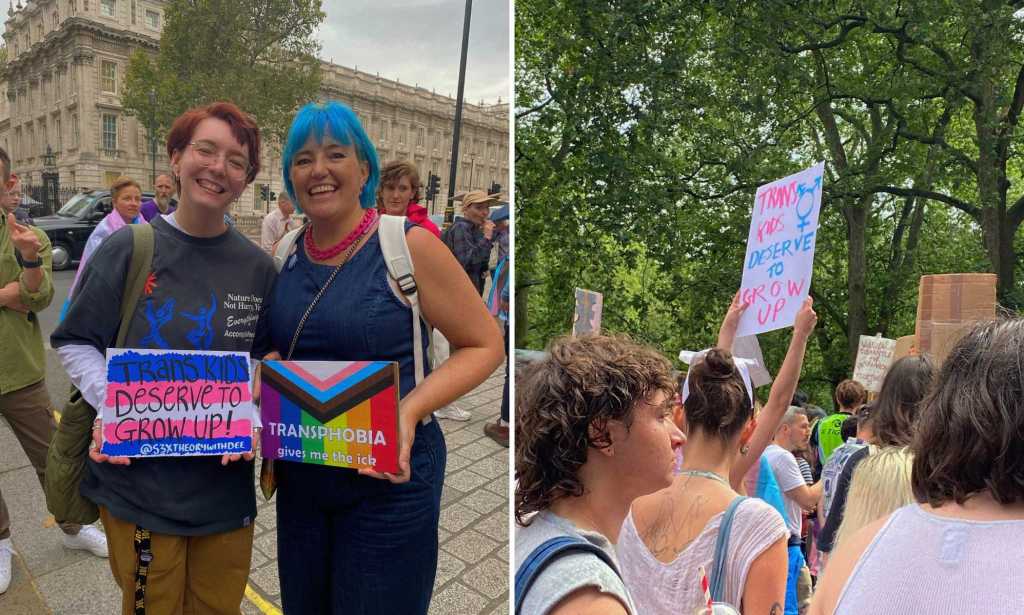Politicians are treating trans and non-binary youth as ‘non-human’, says activist

Dee Lou Whitnell discusses the political landscape and #TransKidsDeserveToGrwoUp (Mark Kerrison/In Pictures via Getty Images/Canva)
The volatile discourse around trans people is seeing politicians treat the community as “non-human”, an activist has candidly said in the run up to Transgender Day of Visibility 2024.
Speaking with PinkNews about their work running the #TransKidsDeserveToGrowUp solidarity campaign for Transgender Day of Visibility (31 March), Dee Lou Whitnell made frank observations about the state of anti-trans politics in the UK and the impact it is having on the community and wider public.
Whitnell, who is non binary, created the hashtag after parts of the government’s guidance for schools on trans pupils were leaked to the press in the summer of 2023. At the time, the leaks suggested trans kids would be barred from playing sports and not be allowed to socially transition without parental consent.
“It was just awful. It was absolutely atrocious and as an ex teacher, I just couldn’t sit and just allow them to kind of suggest these practices to teachers.
“Particularly as a trans ex teacher and a teacher who was solely working with LGBTQ+ kids.”
“I created the campaign trans kids set her up because I knew that if the leaked guidance became the official guidance, our kids wouldn’t become adults,” they said.

Through their work running the solidarity campaign and pushing back against the guidance – which was officially published in December – Whitnell has engaged with organisations like LGBT Consortium, spoke on the first all-trans panel in parliament and has built strong, personal bonds with families who have lost their trans young people.
In one such case, Whitnell said they became close with the family of Corei Hall, a 14-year-old trans boy who took his own life in October, and was invited to his funeral. It was a moment that resulted in a profound realisation for Whitnell about the state and impacts of transphobia in the UK.
“It was in that moment, when I was sitting in a church for a funeral of a young trans boy, that I was like, wow, this is actually the reality of what our trans youth are facing.
“Which is why I am quite blunt and quite in your face with the coverage of trans youth because I think we’re not having real conversations about it.
“I believe that the way that a lot of politicians and adults see young people is that they see them as just non-human; that they don’t have their own capability, they don’t have their own autonomy. When, in reality, they are much [more] well versed than many adults are when it comes to gender and identity.”
After this, Whitnell said they knew they wanted to “make a difference more than just the campaign” and use the campaign as a vehicle “to make a change”.
After the guidance was officially released, Whitnell worked with various organisations to help people fill in the consultation about it, as they felt it had been purposefully made “impossible to complete”.
“If you didn’t have a laptop, if you didn’t have internet access, if English wasn’t your first language, if you’re like me and you’re dyslexic, or you need a physical consultation; it was made so inaccessible for a reason,” they told PinkNews.

Beyond the guidance, Whitnell is keen to raise awareness of the impacts of the politicisation of trans lives, especially as we are in a year in which we will see a General Election.
They said, first and foremost, trans people need to protect themselves during this heightened period of transphobic. “One of the things that I’ve been saying a lot to a lot of my trans friends at the moment is that you are still an activist, you are still fighting for our rights, even if you’re in bed and you’re not reading the news because it is so tiring right now”.
But at the same time, it is “so important to ask these difficult questions and to hold politicians accountable” as “we’re in a moment of trans people are being attacked left, right and centre.”
“It’s really important that you ask politicians direct questions and you don’t allow wishy-washy responses,” they said.
One way Whitnell hopes to engage politicians is by young trans people, parents, carers and teachers sending letters to MPs to help “humanise” the trans community, rather than politicians seeing them as just amorphous statistics.
“That’s something that politicians are doing at the moment, dehumanising trans people by saying that they don’t exist or saying that there are a concept or an ideology.”
“I’m trying to also raise awareness of the fact that how we talk about trans young people and trans people in the media is directly impacting young people,” they said, “because we’re seeing a rise in young people attacking trans people – which we haven’t seen before.
“Previously, we saw people go on dates with a trans person and attacking them because they didn’t realise they were trans. But now we’re seeing young people [attacking trans people] and the only reason for that is because of the media, because of celebrities, because of politicians, making comments about trans people and young people absorbing it.
“It’s our responsibility to make sure that our kids stop killing kids.”
How did this story make you feel?

